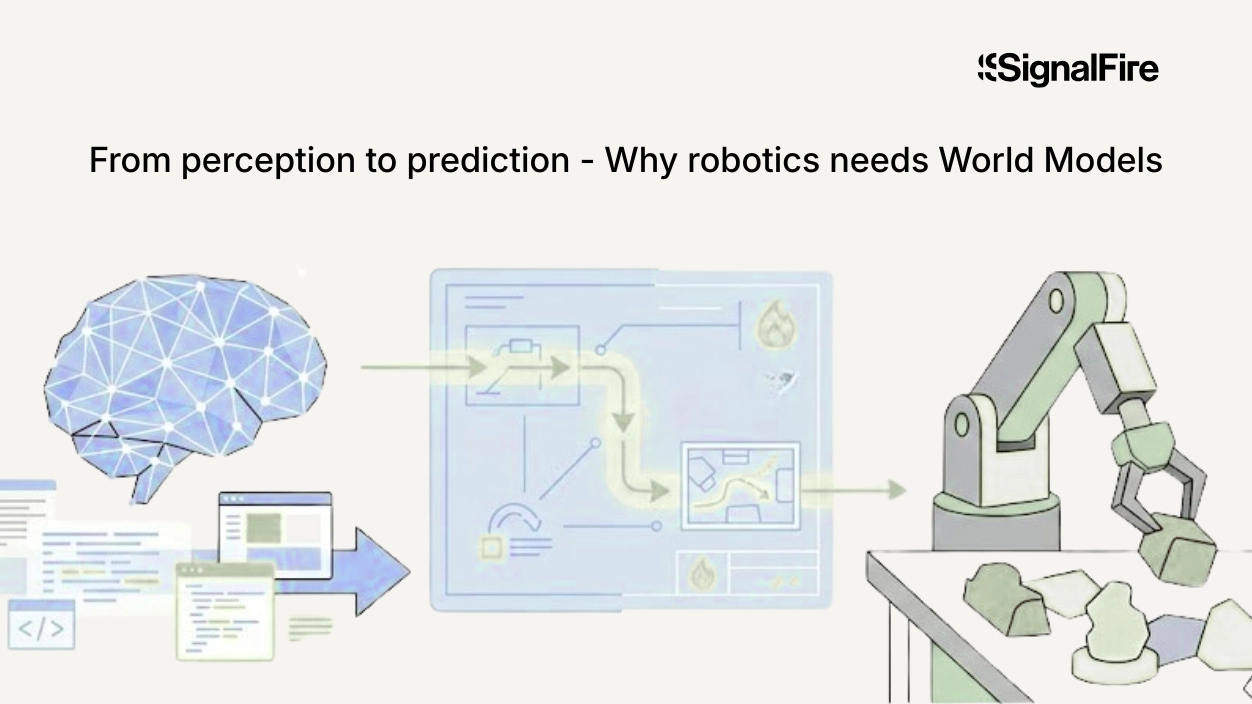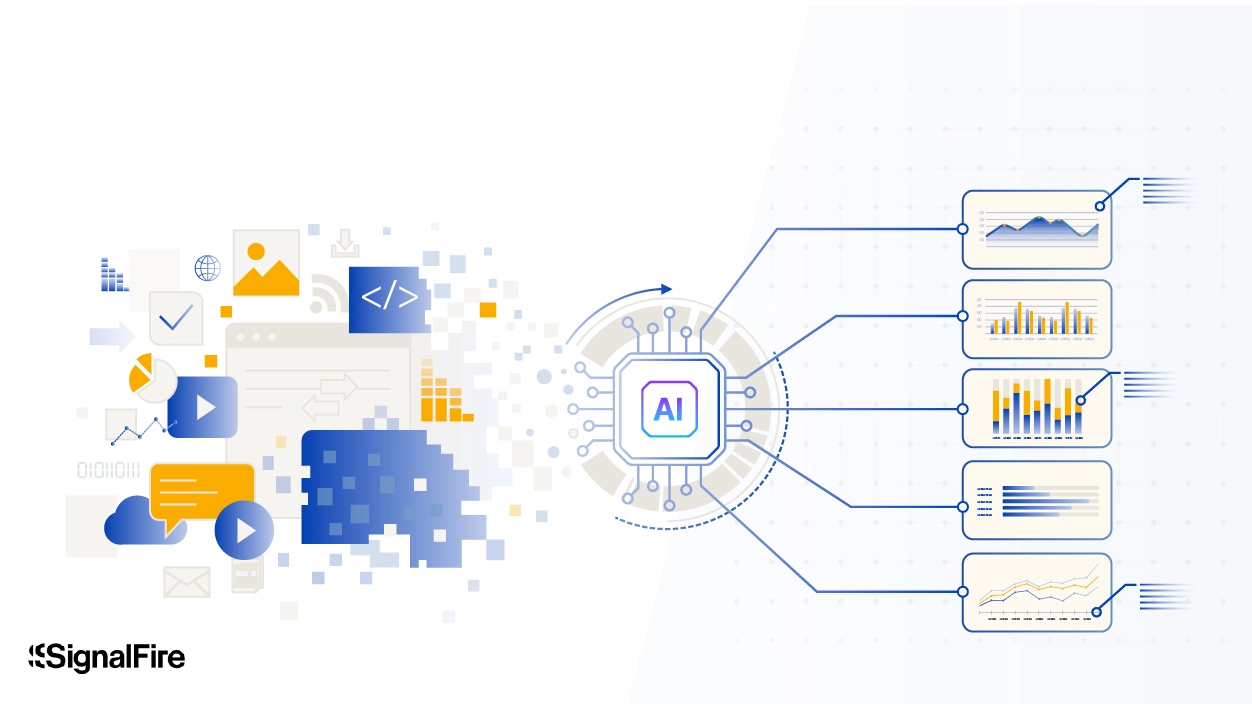
Code has been on a constant march toward human readability since the days of assembly and Fortran. Now we're possibly on the cusp of eliminating the need for specialized interpreters—programmers—who translate product specs into code. But what does this mean for computer science, software, and the businesses that sell it?
Artificial intelligence is reshaping the landscape, ushering in tools that can automatically generate, complete, and optimize code with increasing sophistication. This could prompt an explosion in demand for software as costs come down, programmers redefine their roles, and new opportunities emerge for startups to securely apply this new way to build.
The age of programming began with punch cards and binary as the interface between human intent and machine execution. As technology progressed, coding languages evolved to become increasingly human-readable. Assembly code emerged as a step towards abstraction, followed by higher-level languages like Fortran, C, and C++. Java and Python further simplified syntax and expanded programming paradigms. Now, LLMs are becoming able to interpret English and other natural languages as instructions for building software, merging human-to-human and human-to-computer communication.
Today's coding assistance tools, such as GitHub's Copilot, function much like semi-autonomous driving features in modern vehicles. Just as lane assist systems and automatic parking help drivers without replacing them, these AI copilots enhance programmer productivity without eliminating the need for human oversight. However, more ambitious projects like Cognition's Devin aim to create fully autonomous coding systems, analogous to today's L5 self-driving cars that operate without human intervention—but only in certain locations and conditions. Similarly, today's autocoding tools are only equipped for writing more well-trodden functions but will quickly adapt to rockier roads.
Redefining the role of engineers
AI's impact on various aspects of programming is already evident. Code generation and autocompletion tools can rapidly produce boilerplate code, significantly reducing the time spent on repetitive tasks. AI makes testing and debugging processes more efficient, decreasing the need for human QA engineers. AI is capable of generating test cases and identifying potential issues early in the development cycle, especially since tests are typically shorter and more structured where the technology excels.
However, the creation of novel solutions for unique problems remains a challenge for AI. If you're building in areas where the answers are already well documented, it's just a question of AI memorizing and regurgitating them. But unwinding fresh programming puzzles, especially in tricky industries where regulatory compliance might overshadow efficiency, is proving more difficult. Using AI tools for these cases will require more humans in the loop to devise creative approaches and blend in outside requirements.
For computer programmers, the immediate effect of AI coding tools is a modest increase in productivity. We've heard that scaled companies that adopt copilots are seeing a 15% boost in the number of pull requests that a developer can generate. That's a solid improvement but not game-changing—though GitHub's study suggests productivity boosts as high as 50%. These efficiency gains also allow developers to redirect their energy toward more abstract, strategic, and impactful work. This can lead to breakthroughs for the business while also keeping them more fulfilled and less likely to go looking for other jobs.
To future-proof their careers, programmers should actively experiment with and master emerging AI tools, as they'll be competing against people who are using them, too. SignalFire portfolio companies like Bubble's AI-powered no-code app development platform or Prophecy's data engineering copilot can give them an edge. Developing expertise in specific computer science subdisciplines and honing skills in high-level infrastructure architecture decisions will also become increasingly valuable as low-complexity coding becomes automated. It's still crucial to have a grounding in the fundamentals, but purists who consider these tools cheating may be outpaced.
Securing the future of software development
Automated coding could surpass manual programming with time, offering enhanced security and reliability where human inconsistency can introduce vulnerabilities. For now, though, it can be a double-edged sword. Today, AI-written outputs are considered less reliable and more prone to error than what’s produced by human teams. Companies employing these tools may also lose a holistic view of their codebase, where remaining human teams have less understanding of what does what and how to fix problems.
Many startup opportunities remain even if incumbents like the Microsoft-owned and OpenAI Codex-powered GitHub Copilot may capture large swaths of the AI coding market.
Beyond writing code, AI can improve other parts of the software stack. SignalFire portfolio company Prophecy.io’s data transformation copilot helps users build, deploy, and observe data pipelines that are crucial to accelerating AI and analytics.
Security tools that can detect vulnerabilities in real time as code is written are in high demand. But even if individual blocks of code written by LLMs can be guaranteed as secure, putting them together can introduce vulnerabilities. SignalFire portfolio company Horizon3.ai, for example, offers AI-automated penetration testing as a service, ensuring security after human or AI-written code is deployed.
There are looming fears that AI tools like LLMs can inadvertently expose proprietary private code, stemming from some early incidents. However, major AI providers like OpenAI and Microsoft have taken steps to safeguard data. While other threats may be more dire, there remain opportunities to adapt to employee misuse of public LLMs through better security training, and the deployment of tools that block or scrub inputs that could leak confidential information.
Another promising area is the prioritization of critical sections of code based on runtime usage patterns. This could help assign AI coding autopilots to build functions only used in edge cases by a small minority of a company's customers, while senior human engineers augmented with AI copilots work on core infrastructure that's constantly in use for the whole customer base. A 10% increase in latency for the edge case might be acceptable, but you'd want the best combination of organic and synthetic talent working on the latter. SignalFire’s portfolio company Faros.ai offers an engineering intelligence platform to measure coders’ productivity and guide teams toward the most important work.
If you're building AI software development tools, we'd love to learn more about you. Our venture firm SignalFire has been refining its own in-house AI tools to help portfolio companies with recruiting and growth for a decade. Since we're both investors and AI practitioners, we understand the challenges technical founders face. That's why we've built scalable systems and advisor networks to solve them alongside you.
Elastic demand for software
With such rapid progress around this technology, it's conceivable that tech companies might soon spend a lot less on hiring programmers. We're not quite there yet, otherwise Cognition wouldn't still have job listings looking for software engineers. But similar to the way AWS eliminated the need for companies to have on-prem servers and IT staff to manage them, AI coding tools could make it cheaper and simpler to build a startup while letting founders focus on product and growth.
This decline in the cost of software development, when passed on to the end customer, could also catalyze demand for custom applications. Whether it's solopreneurs getting bespoke infrastructure built for them for cheap or doing it themselves, or big companies avoiding hiring huge teams or outsourcing projects to overseas contractors, we'll see cost and productivity boosts. Wherever there's a need there'll be an app. And wherever there’s an app, there’s a need for security infrastructure.
Perhaps one day artificial general intelligence will run whole software businesses autonomously. But human creativity and real-life domain expertise will remain essential to applying AI in this next chapter of computer science. Just the way that calculators let mathematicians arise from banal computation to the artistic edges of the field, the ability to program with words will let engineers focus on exciting new frontiers.
*Portfolio company founders listed above have not received any compensation for this feedback and may or may not have invested in a SignalFire fund. These founders may or may not serve as Affiliate Advisors, Retained Advisors, or consultants to provide their expertise on a formal or ad hoc basis. They are not employed by SignalFire and do not provide investment advisory services to clients on behalf of SignalFire. Please refer to our disclosures page for additional disclosures.
Related posts

The missing piece in robotics: A model of the world

The built economy: How vertical AI is unlocking the biggest untapped market in trades and construction




